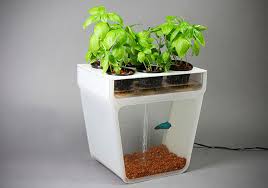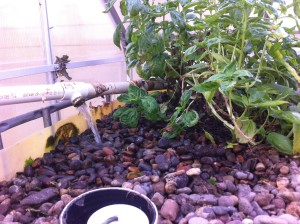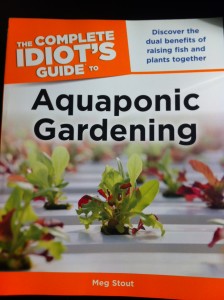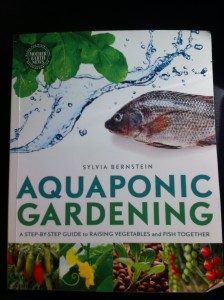Even though I came to it late, I have still been gardening a long time. Whenever one does something for a long time, there are bound to be routines that enter in and, consequently, a lack of novelty. Routines, normalization, same-old-same-old; call it what you will. It’s part of life, but it can sometimes lead to loss of inspiration and of the spark that ignited one’s initial passion. Though I have been grounded by the year-in-year-out routines of gardening, the seasons, and the land, any astute reader of this blog will easily sense that I also crave, almost need, the new, the unusual, and the innovative. We might say that routines are my work’s chewy potatoes, whereas novelty is the zesty sauce that makes me want to take yet another bite.
Most of the novelty that I encounter in gardening comes in the form of new crops to grow. This past year I thrilled to plant something totally unusual, like Burbank’s Thornless Opuntia Prickly Pear,
http://www.urban-ag-solutions.com/exciting-new-rooftop-introduction/
which, by the way, is doing very well up on the rooftop. And new waves of plant prospecters and explorers on other continents continue to bring the novelty season after season. I am just about to harvest two new (to me) Andean crops: mashua and oca, and will soon give them their fair due on these cyber-pages. What new introductions will next year’s seed catalogs and garden shows hold? Who knows….I wait with baited breath! Ah, novelty, a source of never-ending excitement and joy.
Now just imagine if, instead of merely a new crop here and there, the level of discovery could be upped even further and a whole new METHOD of gardening found. Well, I think I have stumbled upon just such a thing: aquaponics. Now some of you will perhaps yawn and justifiably question, “What’s so new about that?” If you are one of the agricultural illuminati who has already been exposed to aquaponics, then my hat’s off to you. I suppose I had heard the term now and again over my 20-plus years at the plow, but I never really understood what it implied nor had I ever seen a functional system.
Aquaponics is the union of aquaculture (fish husbandry basically….thousands of years old) with hydroponics (soilless growing of crops….perhaps decades old). Aquaponics aims to create a totally organic (which neither modern aquaculture nor hydroponics can boast), ecological growing system whereby the cultivator gets both fish and produce and each lives in perfect harmony, symbiosis even, with the other. All this is made possible by the invisible “third partner” in the system: bacteria.
The aquaponics reality in miniature.
Here’s how it works. Fish feed and then excrete ammonia (through their gills) and poop (you know where that comes out). Ammonia is , in any significant concentrations, toxic to fish – that’s why they got rid of it in the first place. It also happens to be high in nitrogen, the major plant nutrient (there’s some foreshadowing going on here….do you get the Brady-Bunch sense that somehow these two are going to form a family?) Poop is high in mostly everything else that plants need, also convenient. Bacteria feed on ammonia and eventually reduce it to nitrate, a highly absorbable form of nitrogen for plants. Thanks to the bacterial transformation of ammonia to nitrate, the fish are spared a self-poisoning end, and thanks to that same activity, plants can be grown in water or gravel or clay pellets (no soil….honest!) with only that nitrate-rich water washing over them and the poop solids broken down into compost tea by redworms. I’m not going to go into all the mechanics of the system, but suffice it to say that when it delivers what it claims, aquaponics. appears to be a kind of modern agricultural alchemy. The system inputs are fish feed and electricity (to pump water, aerate it, and heat it) and the ouputs are veggies and fish to eat.
Here’s a grow bed in my neighbor’s aquaponics greenhouse. Yep, that’s just plain ole gravel he’s got there, being flooded by water from his fish tanks below (and then periodically drained). It’s supporting some pretty nice basil with nary a grain of what we’d call “soil”. Oh, and go figure how my neighbor, who’s a banker, not a gardener, found out about aquaponics WAY before I did!
As a seasoned gardener, I know how many times my yields and/or flavor of crops have been compromised by too little water. I also know what a boatload of water I have to deliver during the middle of summer to make crops grow properly. This system uses the minimum water for the maximum effect. All it requires is topping off the tanks to account for losses from evaporation and transpiration and that’s it; plants always get as much water as they need and nothing is wasted, as in most every terrestrial irrigation system I know.
Are you beginning to see why I’m jonesing on this system, wide-eyed with the potential, and grinning to myself about the possibilities. Yet to be balanced, there is a small voice of critique within, amidst all the rah-rahing: if this is so great, how come I haven’t heard of it before and how come everybody’s not doing it? That’s what I aim to find out about aquaponics.
For starters I have been reading two great books.
One is The Complete Idiot’s Guide to Aquaponic Gardening by Meg Stout
the other, Aquaponic Gardening: A Step-by-Step Guide to Raising Vegetables and Fish Together by Sylvia Bernstein
There are also innumerable youtube videos that bear watching.
Finally there’s nothing like seeing some real systems, and those of us who live in the Portland area have some local educational options to see and learn from current practitioners. Something I’m planning on attending on Dec. 5th is an aquaponics system design workshop at Ingenuity Innovation Center in St. Helens, OR
http://youringenuity.com/events/
Join me if you are nearby and see if this is too good to be true or just plain good and true.
For someone like me who likes novelty to have discovered an entirely new way of gardening….this is a watershed moment. I’m experiencing not only the joy of a new crop, but the meta-joy of a whole new system!




